Current Undergraduate Courses
Course schedule for the current semester: Fall 2024 History Courses
Contact Kathy Lillich, Academic Advisor, for more information about course specifics.
The History Department updated its requirements for the major beginning in the Fall 2021. View the current Major and Double-Major requirements or contact Kathy Lillich for more information.
If you are curious how a course you have taken meets the requirements, check out our updated Courses by Category breakdown.
Interested in a History Minor? It takes fewer than one course per semester! Check out our History Minor page for more information.
Spring 2025 Courses
100-Level Courses
- HIST 102 - Western Civilization II: Europe in the Modern World
- HIST 111 - World History to 1450
- HIST 112 - World History from 1450
- HIST 151 - History of the United States to 1877
- HIST 152 - History of the United States since 1877
200-Level Courses
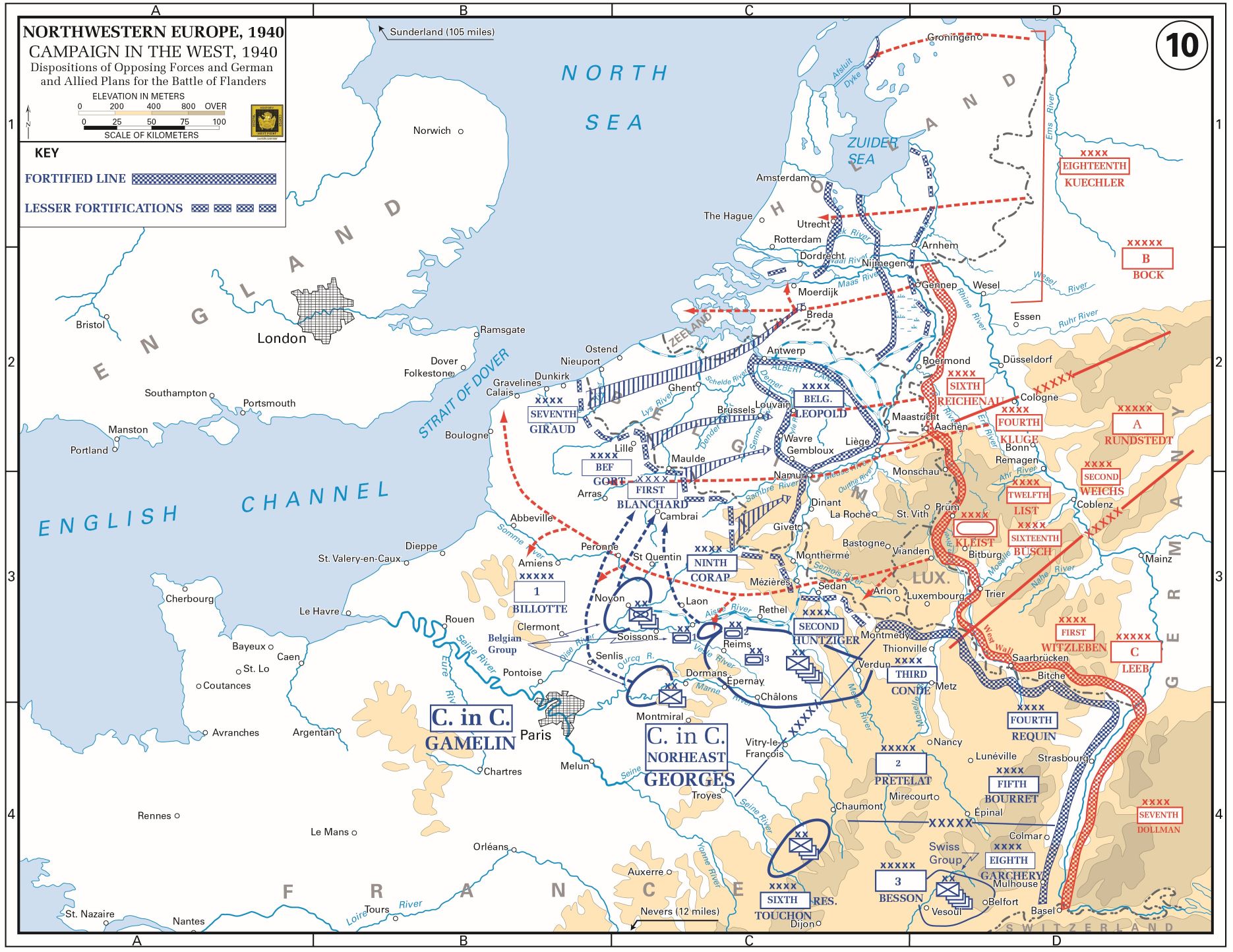 |
HIST 222 - Western Warfare since 1618 Learn the evolution of modern warfare from the wars of religion through the World Wars and the Ukraine War. Explore how ideologies, technologies, and leaders have shaped and reshaped the continent through 400 years of war. |
300-Level Courses
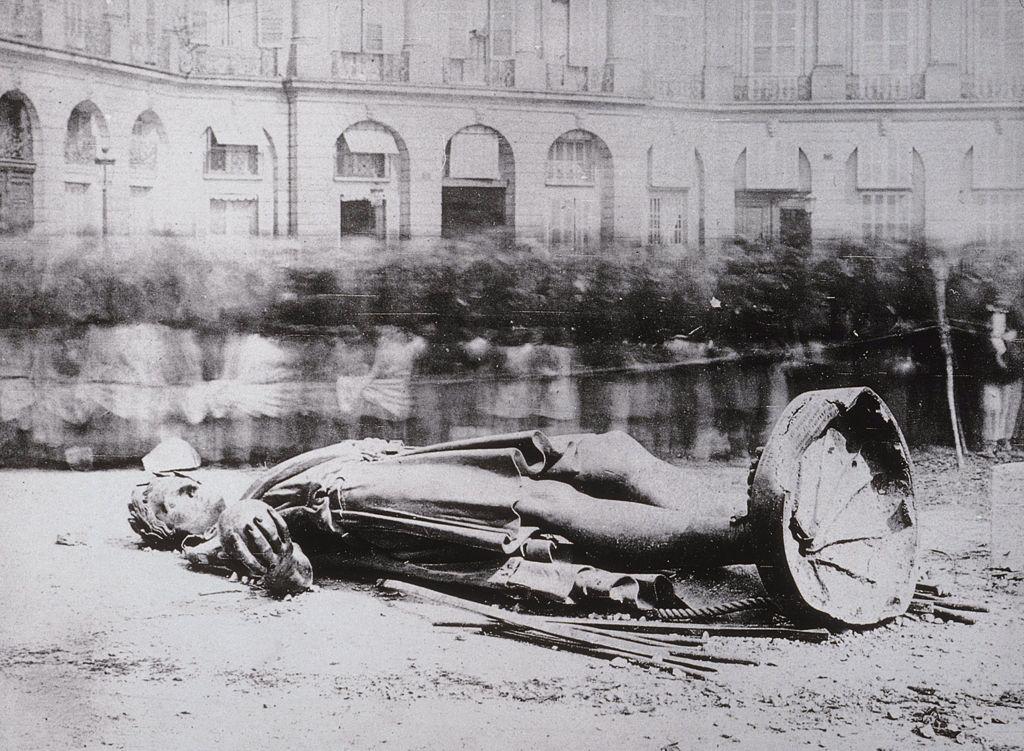 |
HIST 300 - Introduction to Historical Thinking This class offers students a discussion-driven introduction to historical thinking and methods. Readings highlight the diversity of approaches and aims that exist within scholarly history and equip students to explore historical topics in an independent way. |
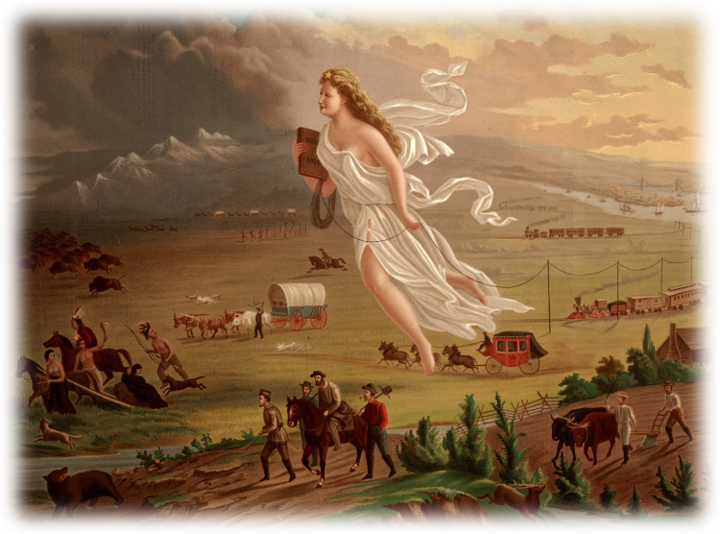 |
HIST 301 (ZA) - The American West (online) In this course we consider the American West—the mythical landscape of adventure, freedom, and individual opportunity—as a region of unusual violence, intercultural conflicts over land and resources, environmental challenges, and political ferment. |
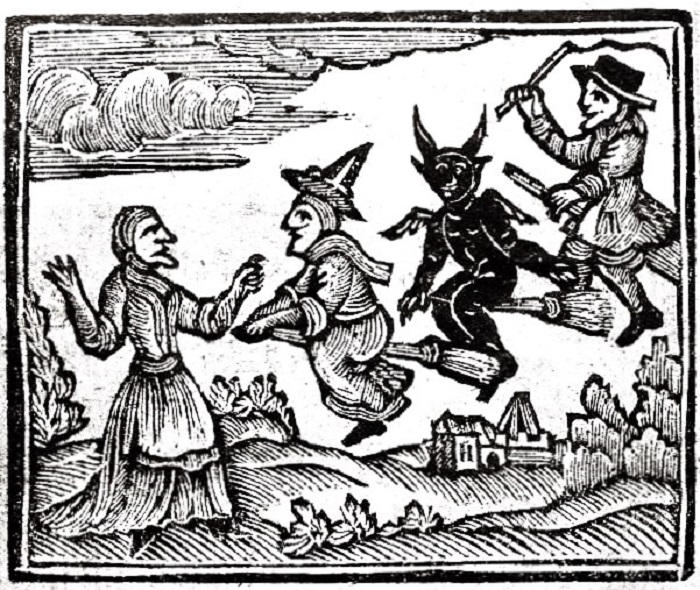 |
HIST 301 (ZB) - The Salem Witch Trials (online) People experiencing misfortune or tragedy in colonial New England often feared they might be bewitched; others, disproportionately women, feared being accused of witchcraft. This course examines the theological beliefs, socio-political conditions, and assumptions about gender that brought forth and sustained witchcraft prosecutions in seventeenth-century New England, especially at Salem. |
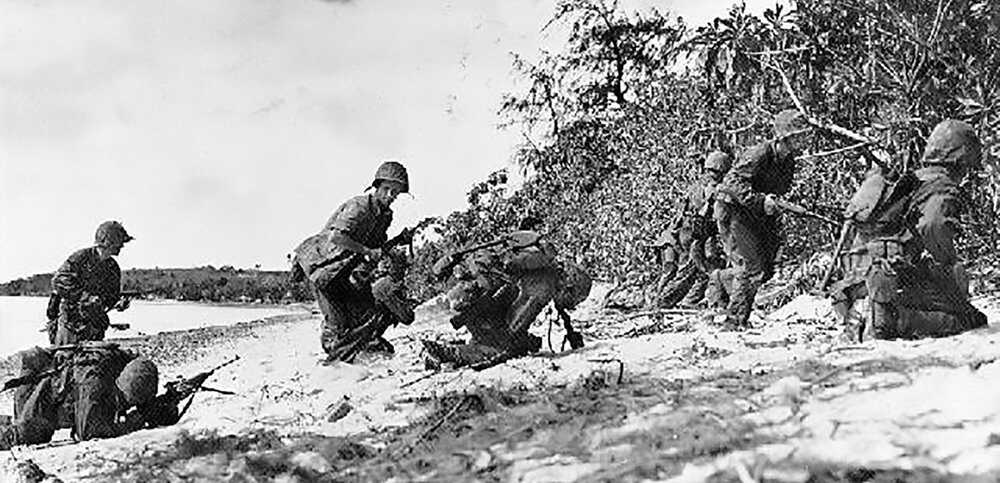 |
HIST 301 - The Pacific War World War II began and ended in East Asia! Learn how and why, and do so through a participatory war game simulation that is part of this course. |
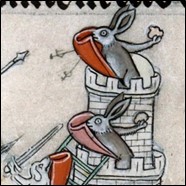 |
HIST 301 - Medieval Warfare This course will cover the basics of medieval warfare. It will focus on how people made war between roughly 500 and 1500 AD. Topics will include crusading, strategies, logistics and infrastructure. More importantly, the course will delve into the meaning of warfare in medieval society and how to move beyond the popular – and mostly erroneous – modern notions of it. |
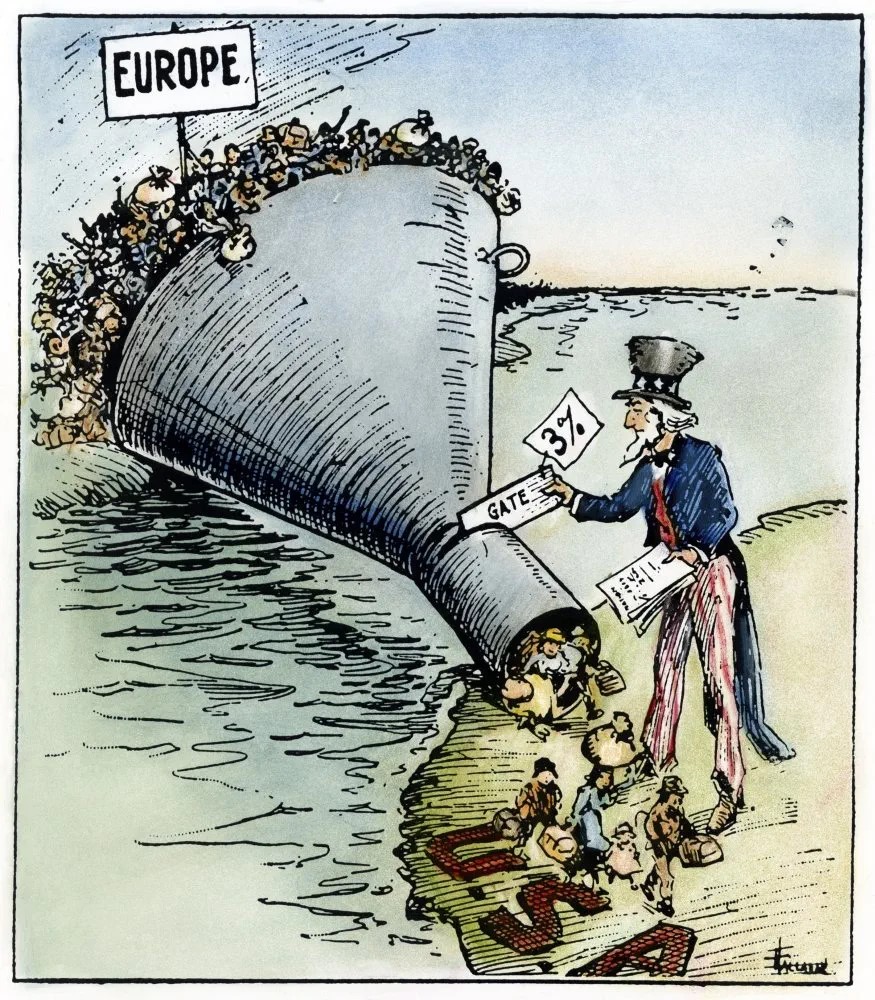 |
HIST 301 - U.S. Immigration History What does it mean to be an American? This class examines the history of inclusion and exclusion in American society from the colonial period to the present. |
 |
HIST 340 - The Middle Ages This course is an introduction for all students. It covers not only how professional historians discuss the Middle Ages but also images of the medieval period in popular culture and how they contribute to our sense of the present. |
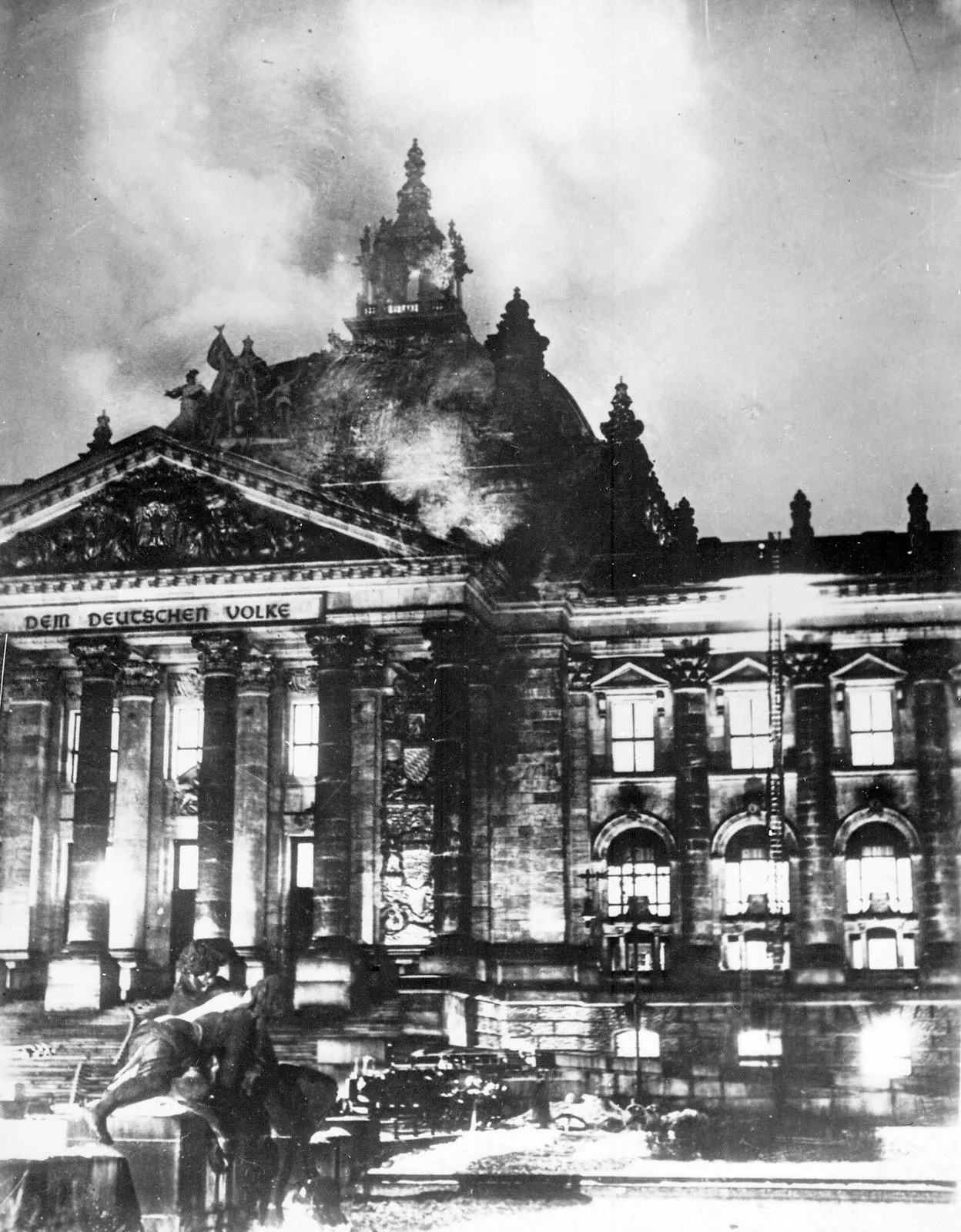 |
HIST 388 - Nazi Germany and the Holocaust Do you want to go beyond the sensationalized story and truly understand how a whole nation succumbed to an evil dictatorship? This class will follow the development of Nazism from its origins during the Weimar Republic to its defeat in WWII. |
500-Level Courses
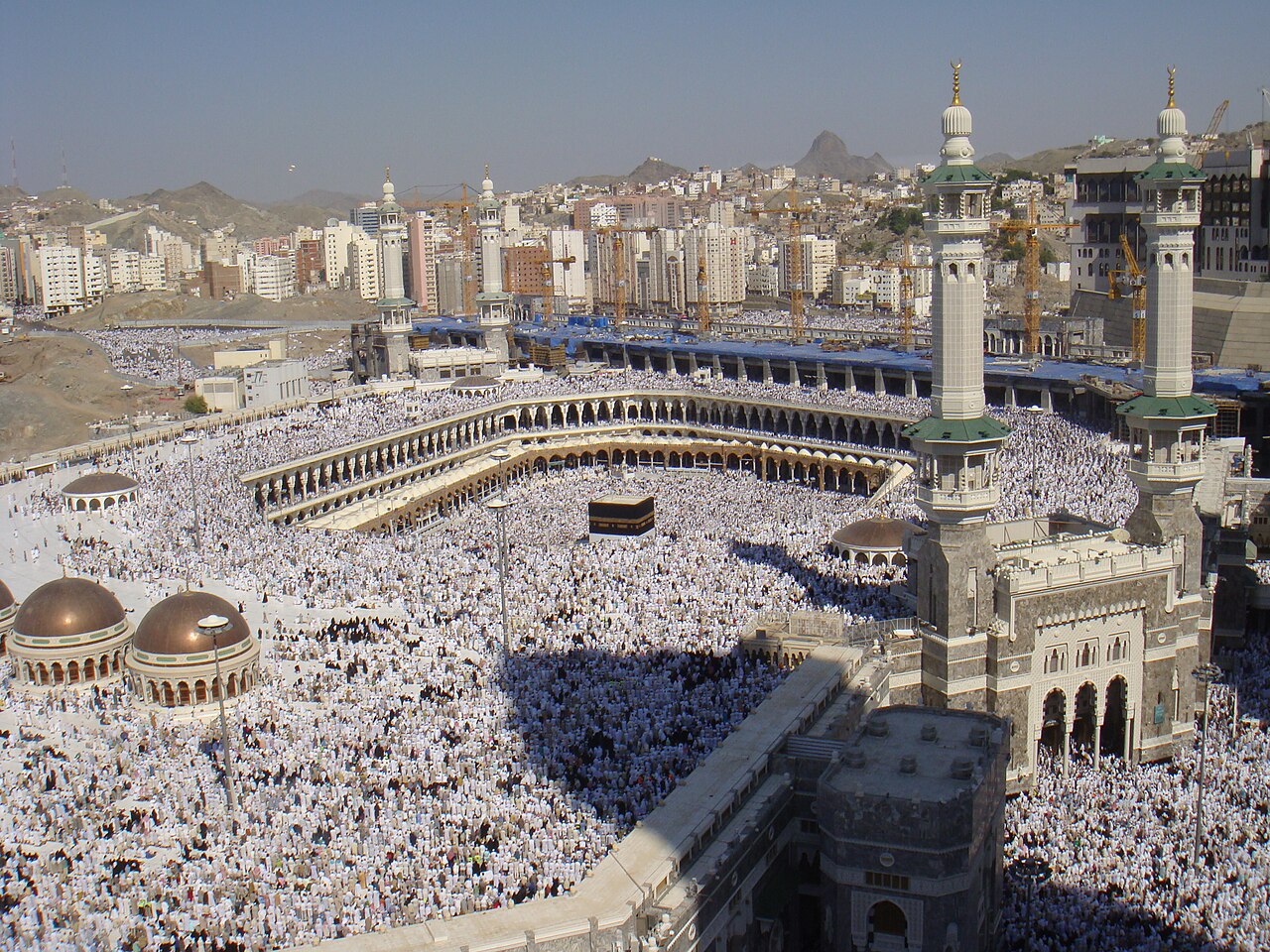 |
HIST 516 - The Modern Middle East This course will present a wealth of information about politics, society, and culture in a region that may be unfamiliar to you. It'll help you assess one of the most important themes in world history--the interplay between domestic developments and the power of globalization. Finally, it'll give you a deeper understanding of world events by providing critical background to the wars in Afghanistan and Iraq and the Palestine-Israel conflict, as well as to movements for change, including the Arab Spring and human rights protests in Iran. |
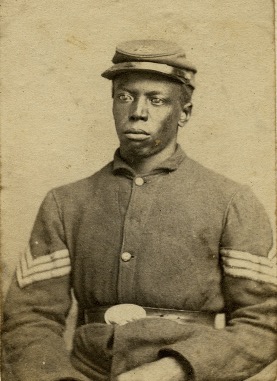 |
HIST 529 - Civil War and Reconstruction This course will address the causes and consequences of the sectional conflict between the North and the South. Special attention will be given to the institution of slavery, the rise of sectional politics and the struggle over slavery's expansion into the West, the secession crisis, the military campaigns of the Union and Confederate forces, daily life on the home front, the Emancipation Proclamation, and the varied plans for postwar reconstruction. Our task this semester is to understand all facets of this conflict--not just military strategy, tactics, and battles--including how the Civil War affected African Americans, women, and Indigenous nations, making this a course devoted to social and political history as much as military history. We will be examining this history through an academic lens, not the lens of a hobbyist or enthusiast. |
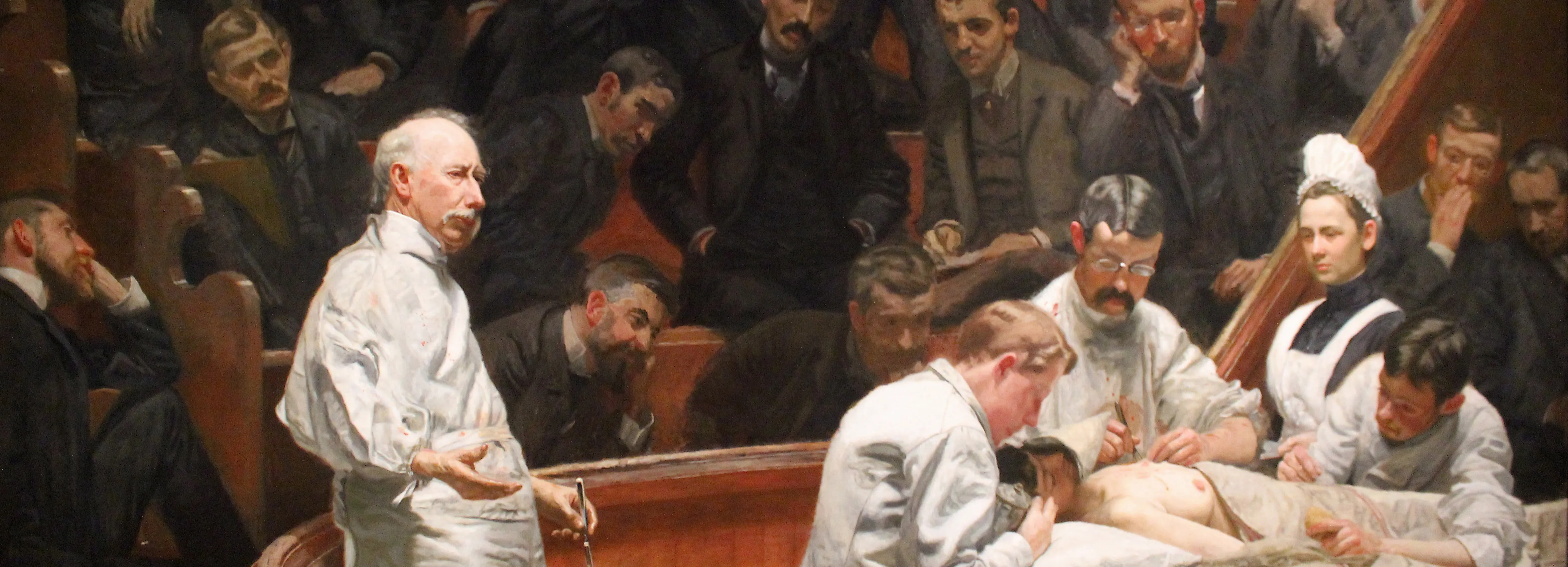 |
HIST 534 - Social History of Medicine This course focuses on the social history of public health, disease, and medicine. Geographically, the course focuses on the Western world. However, the course also integrates regions and peoples from around the globe. After all, disease and human suffering know no boundaries. Thematically, this course highlights class struggle, policymaking, race, ethnicity, sexuality, and gender. Plus….we study fantastic stuff like cholera, TB, STDs, Eugenics, Midwifery, Veterinary Science, etc…
|
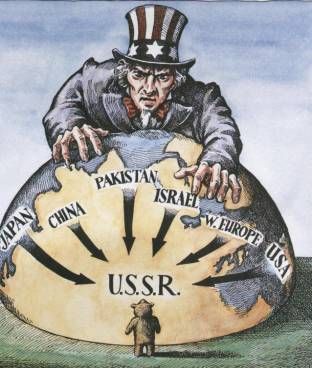 |
HIST 544 - U.S. and World Affairs since 1920 This course covers the U.S. military base network from its inception to the present. In doing so we’ll address a wide range of topics, from the relationship between U.S. troops and populations of host nations, to imperialism, to the environmental impact of U.S. installations. Students will develop an understanding of the U.S. military presence around the globe through several lenses such as imperialism, environment, and gender. They will become familiar with different theories of empire, contextualize the United States’ current global presence, and form an opinion about the appropriate terminology to describe it. |
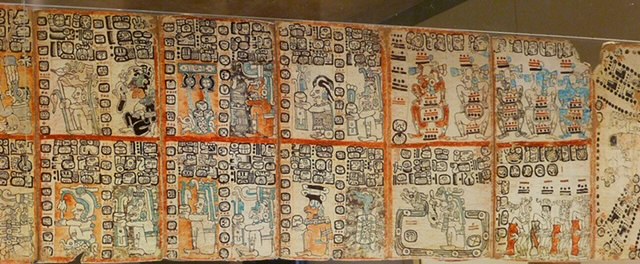 |
HIST 559 - History of the Aztecs, Inca and Maya This course explores the dynamic and extraordinary conquests of Spanish America. How did just a few hundred Spaniards topple the expansive Aztec empire? What are the legacies and myths of conquest that persist today? We will examine relations between indigenous inhabitants of the Americas and European conquistadors and explore the nature of religious conversion through historical texts, artwork, and literature.
|
 |
HIST 572 - 19th Century Europe What does it mean to be free? What does it mean for a society to be wealthy? Is democracy a sham? These are the kinds of questions that Karl Marx and John Stuart Mill disagreed about strenuously. This class will investigate major issues in the history of 19th century through their arguments over such central questions as individual and political freedom, women’s rights, economics, poverty, revolution, and colonialism. |
| HIST 586 - Advanced Seminar in History | |
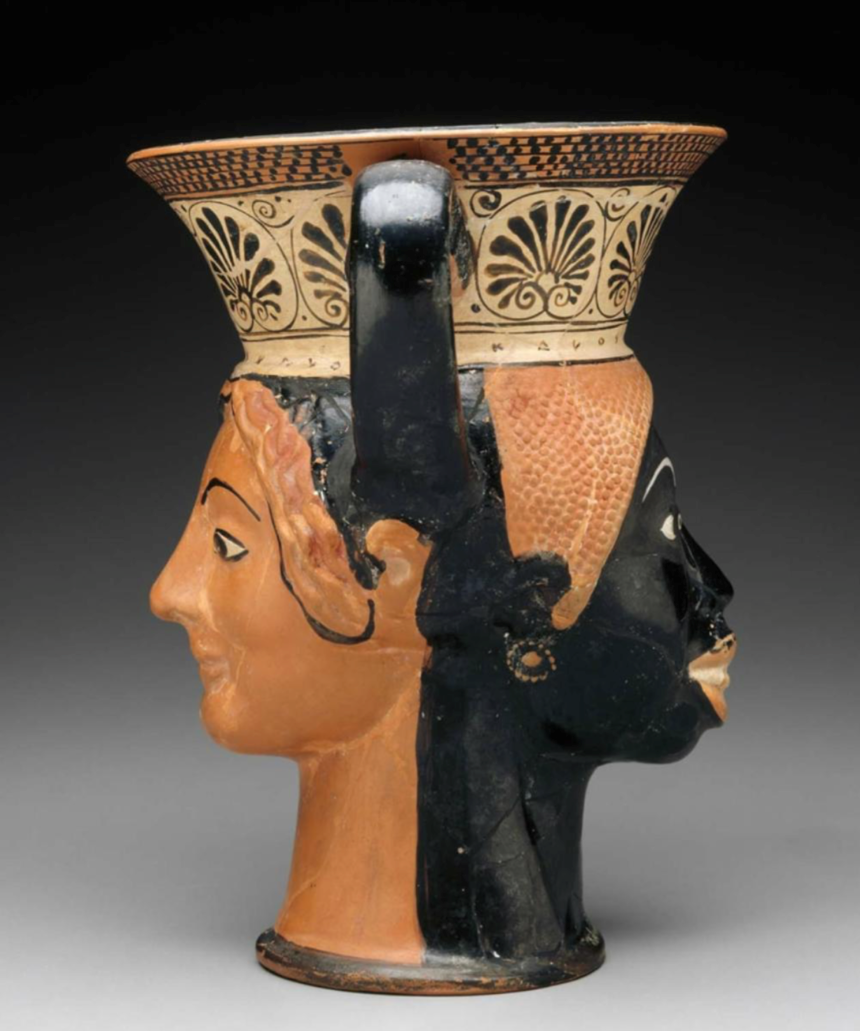 |
HIST 597 - Ancient Identities: Race and Ethnicity in the Ancient Mediterranean How often do you think about the Roman Empire? What does this (now ancient) viral trend reveal to us about our relationship to antiquity today? In this class, we will undertake a critical exploration of literary and artistic representations of identity and otherness in the ancient Mediterranean and investigate how the study of antiquity has shaped—and continues to shape—discourses on identity, race, and ethnicity today. |
Fall 2024 Course Flyers
|
HIST 155 Military History Since 1775 |
HIST 300 Introduction to Historical Thinking |
HIST 301-B Video Games & History |
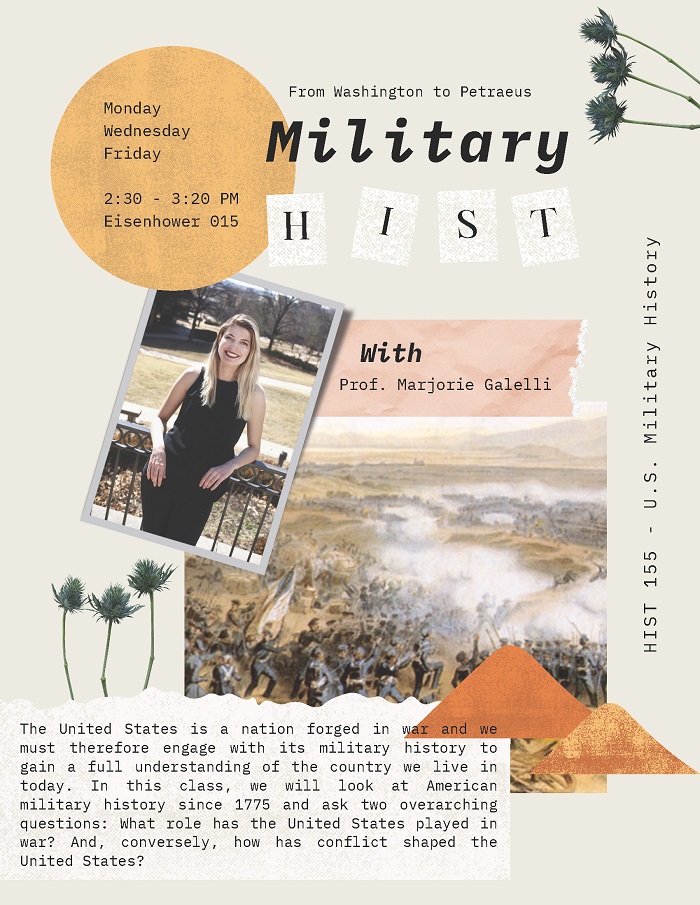 |
 |
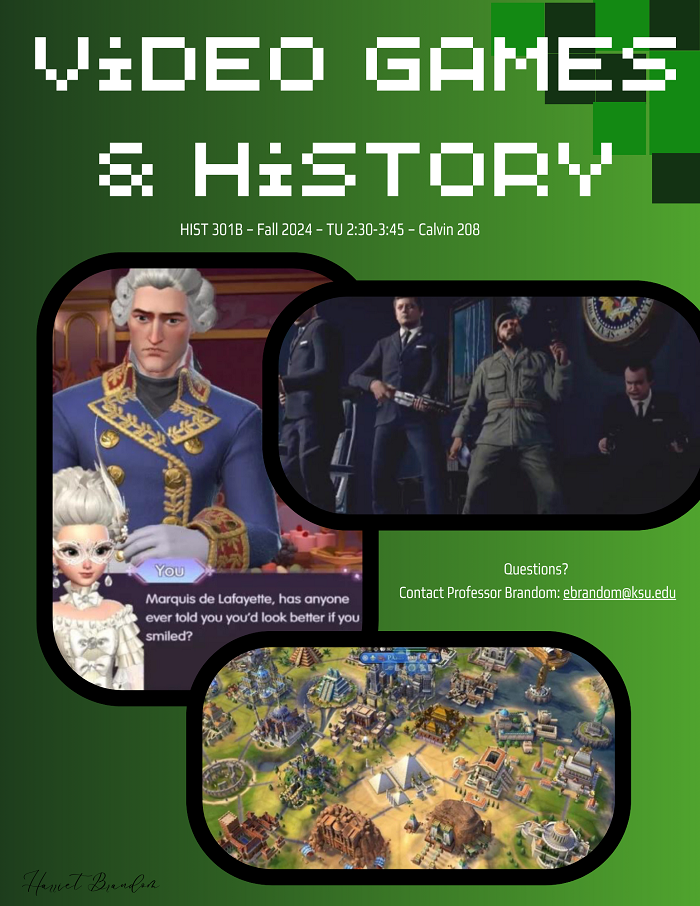 |
|
HIST 301-C Topics in History - Christianity to 1600 AD |
HIST 301-ZA Topics in History - America's First Ladies: Gender, Politics, Scandal |
HIST 330 History of East Asian Civilizations |
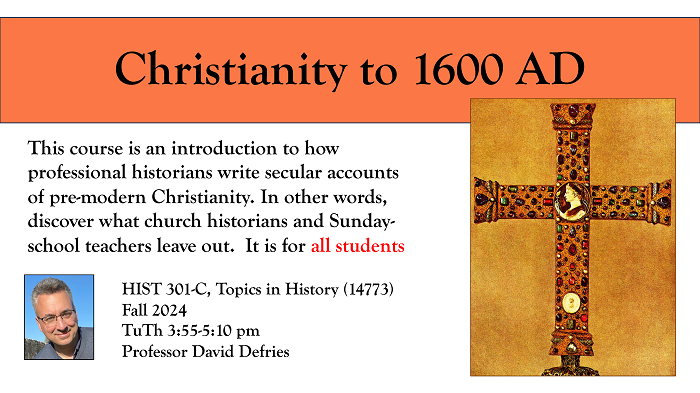 |
 |
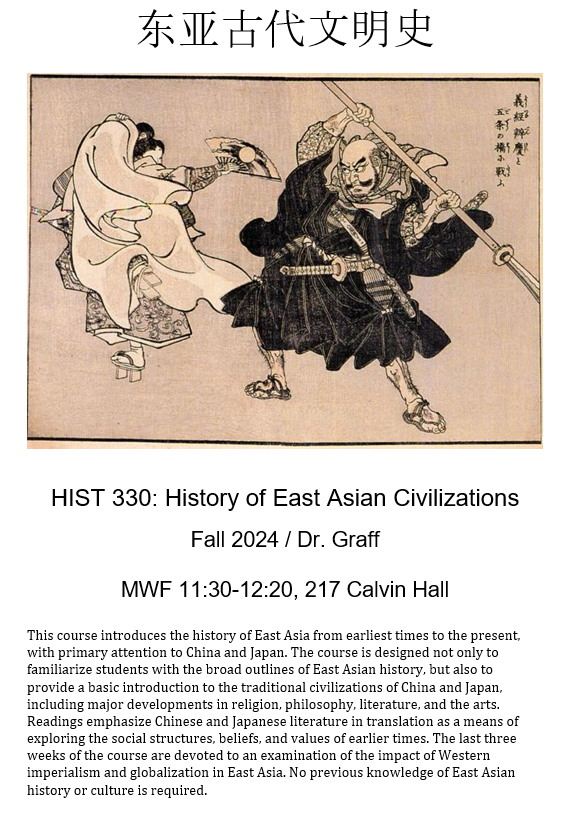 |
|
HIST 525 Colonial America |
HIST 533 Pirates, Plantations, and Empire: Caribbean History |
|
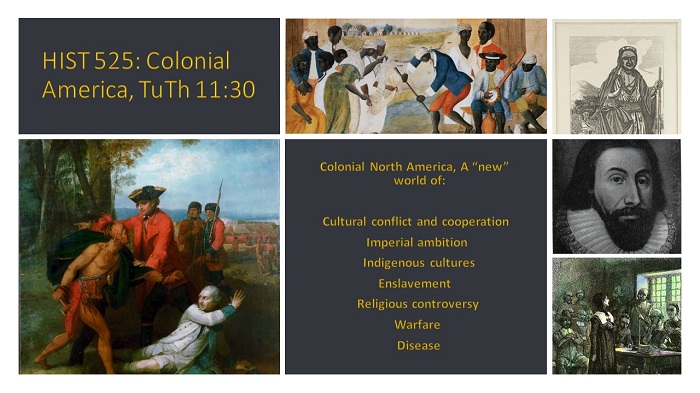 |
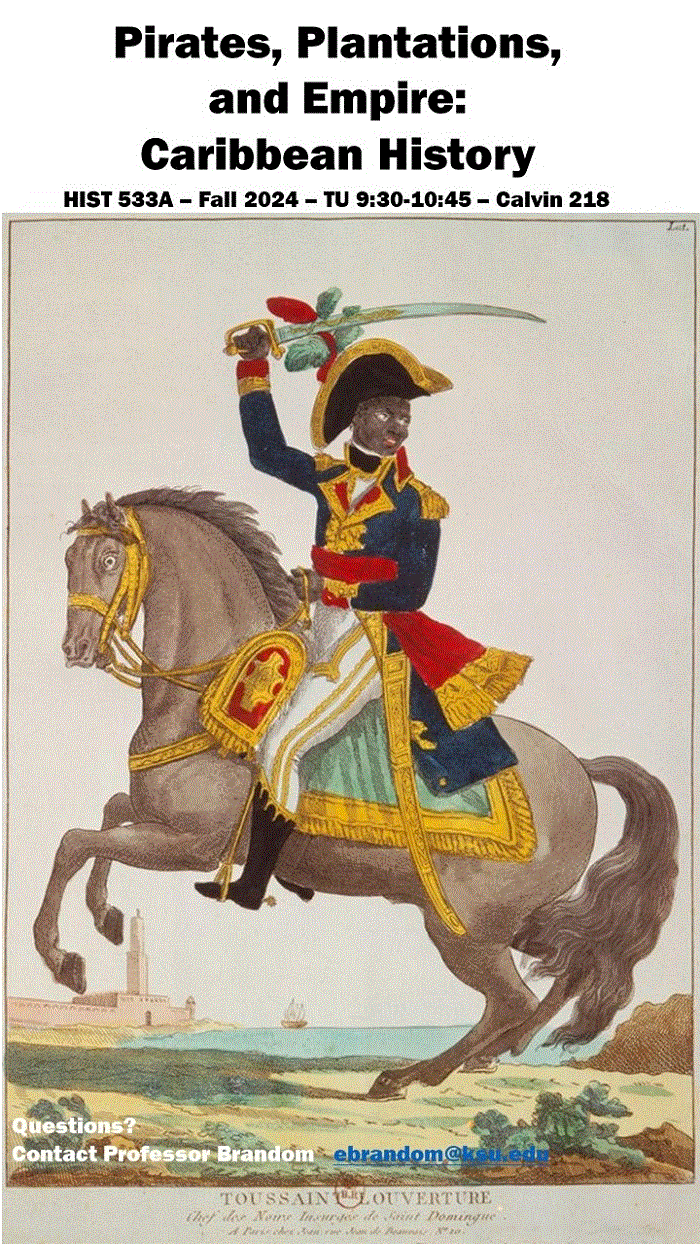 |